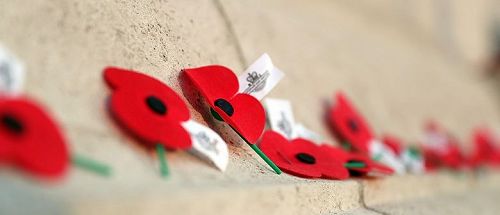
ANZAC Chapel Service sermon
The Reverend Keith Elliott V.C.
With the theme of today’s service embracing a range and era of battles, from a personal perspective, I have had three generations taking part. My Great Grandfather in the NZ Land Wars; my Grandfather in World War One at the Battle of the Somme and my father serving in the Pacific, during World War Two.
Engari, kei te tu ahau i tenei ra ki te whakahono i tetahi tangata toa a toku matua a Keith Elliott.
However, I stand here today to honour a very brave man, my Uncle, Keith Elliott V.C.
On 15 July 1942 Sergeant Keith Elliott No 6571 22nd Battalion, led his platoon in attack under heavy machine gun and mortar fire at Ruweisat Ridge in the western desert, North Africa. Although wounded in the chest, Keith hearing of an Officer badly wounded and needing assistance, he and four men went to his rescue. While searching for the officer they came under fire from a machine gun post, as Keith led a bayonet charge over open ground. This eventually resulted in capturing four machine gun posts and an anti-tank gun. In all, fifty prisoners were captured. In spite of his wounds, he reformed his platoon and handed over his prisoners, now numbering 130. His Commanding Officer said that for Sergeant Elliott to have been able to bring out so many men under such dire circumstances showed amazing quick appreciation of the situation and outstanding qualities of leadership.
He was awarded the Victoria Cross for his actions on Ruweisat Ridge on 15 July 1942 in the western Desert Egypt. To win the Victoria Cross of New Zealand a person has to first have demonstrated valour for an act of bravery at great risk to their life. Secondly, this had to have taken place in the presence of the enemy.
For the purpose of this occasion I would like to move away from the horrors of battle, but instead to consider the man and what influences had been in his life to prepare him for dealing with such an alien situation.
Keith wrote: “Let us hear the conclusion of the whole matter: fear God and keep his commandments; for this is the whole duty of man.” Ecclesiastes 12:13
He was always very much his own man and had a strong faith. He told me that in the desert in the evenings he would have prayers with his men and always stressed the need to fight honourably.
Early in his life he showed his ability to make decisions quickly and to carry them out. When the dental nurse came in the mobile clinic to his school, Keith flew into action, scaled the tallest pine tree in the school and remained there until the so called ‘murder house’ had left!
Keith became a pupil at his much loved Feilding High School and a member of the school’s first fifteen. He was always impressed by the school motto. “kia toa, kia ngakau nui” meaning have courage, be strong and of good heart. He carried this motto with him and shared it with the men in the desert within his platoon. He used his love of rugby as an example as the greatest teacher for sportsmanship. He described rugby being like a battle with two sides, one against the other and sometimes you are up and then you are down, but never give up! Keith gifted his Victoria Cross to Feilding High School, where it stayed for many years, but now permanently resides in the war museum at Waiouru.
He wrote a letter to the students of the school, which reveals much about his philosophy. It reads in part: I always remember being told by a certain person there was a job for you in the world – go out and find it and make a good job of it. Our job has come in a very different line than any of us ever expected, but if we can make a job of this, your future will come in the occupation you are now training for and some of you may perhaps kick a goal from your try and bring honour to the school in a better way than I – in a time of sanity. However, there are things that will face you all – hardships that must be overcome and if this war can bring about peace evermore, it will be worth the waste and destruction it is causing.
Following the war, Keith became ordained as an Anglican Priest and was able to continue his desire, carrying on the battle to always help those in need. He was the Vicar at several churches in the Manawatu and Rangitikei. Later working for the Maori Mission based at Putiki Church Whanganui and then City Missioner for Wellington. During his time as Vicar at All Saints Church in Palmerston North, he found it difficult to visit his parishioners in outlying areas so he sked the Bishop for a parish car. This was declined. However, Keith in is inimitable way chose to try again, so rode his bicycle up the aisle of the church and parked it next to the pulpit then delivering an appropriate sermon. Yes, he got the car!
In later years, he raised funds for building a recreational centre for under privileged teenagers in Wellington City by walking successfully from North Cape to Invercargill along with a contingent from his Parish as support crew.
Keith was never just a long distance relative known only by a photograph on a wall, but very much part of all our lives. In later years, when ordained as an Anglican priest, he married us all, baptised the babies and buried those who passed away.
Auspiciously, Keith Elliott was born on April 25th, ANZAC Day 1916 which was the year ANZAC was first celebrated in New Zealand.
The one battle Keith didn’t win was that of cancer. He died on 17 October 1989. He was buried with full military honours and at the request of the family two students from Feilding High School were honorary pallbearers.
In conclusion I leave you with a quote from Martin Luther King:
“The ultimate measure of a man is not where he stands in times of comfort and convenience but where he stands in times of challenge and controversy.”
ANZAC Chapel Service sermon by Mrs Lee Elliott

